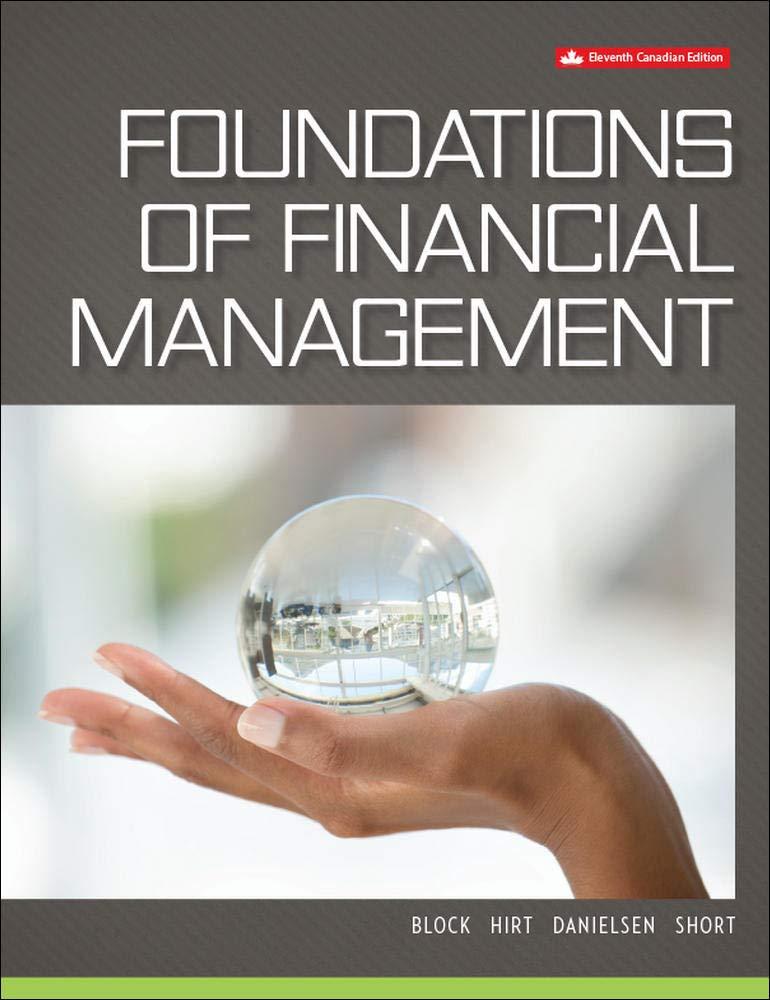Answered step by step
Verified Expert Solution
Question
1 Approved Answer
If Stephenson decides to issue equity to finance the purchase, determine the net present value (NPV) of the project. (Hint: Calculate the after-tax increase in

- If Stephenson decides to issue equity to finance the purchase, determine the net present value (NPV) of the project. (Hint: Calculate the after-tax increase in earnings as a result of the land purchase as a perpetuity.)
Given this NPV construct Stephenson?s market value balance sheet after it announces the purchase will be financed with equity. (Hint: The market value of equity increases by the market value or NPV of the land purchase.)
| Market Value Balance Sheet | |||||
|
| Old assets |
|
|
|
|
|
| NPV of project |
|
| Equity |
|
|
| Total assets |
|
| Debt & Equity |
|
Then what would be the new price per share of the firm?s stock? And how many shares will Stephenson need to issue in order to finance the issue?
 Stephenson Real estate Recapitalization Stephenson Real Estate Company was founded 25 years ago by the current CEO, Robert Stephenson. The company purchases real estate, including land and buildings, and rents the property to tenants. The company has shown a profit every year for the past 18 years, and the shareholders are satisfied with the companys management. Prior to founding Stephenson Real Estate, Robert was the founder and CEO of a failed alpaca farming operation. The resulting bankruptcy made him extremely averse to debt financing. As a result, the company is entirely equity financed, with 18 million shares of common stock outstanding. The stock currently trades at $37.50 per share. Stephenson is evaluating a plan to purchase a huge tract of land in the southern United States for $105 million. The land will subsequently be leased to tenant farmers. This purchase is expected to increase Stephensons annual pretax earnings by $21.5 million in perpetuity. Kim Weyand, the companys new CFO, has been put in charge of the project. Kim has determined that the companys current cost of capital is 10.5 percent. She feels that the company would be more valuable if it included debt in its capital structure, so she is evaluating whether the company should issue debt to entirely finance the project. Based on some conversations with investment banks, she thinks that the company can issue bonds at par value with an 7 percent coupon rate. Based on her analysis, she also believes that a capital structure in the range of 70 percent equity/30 percent debt would be optimal. If the company goes beyond 30 percent debt, its bonds would carry a lower rating and a much higher coupon because the possibility of financial distress and the associated costs would rise sharply. Stephenson has a 40 percent corporate tax rate (state and federal)
Stephenson Real estate Recapitalization Stephenson Real Estate Company was founded 25 years ago by the current CEO, Robert Stephenson. The company purchases real estate, including land and buildings, and rents the property to tenants. The company has shown a profit every year for the past 18 years, and the shareholders are satisfied with the companys management. Prior to founding Stephenson Real Estate, Robert was the founder and CEO of a failed alpaca farming operation. The resulting bankruptcy made him extremely averse to debt financing. As a result, the company is entirely equity financed, with 18 million shares of common stock outstanding. The stock currently trades at $37.50 per share. Stephenson is evaluating a plan to purchase a huge tract of land in the southern United States for $105 million. The land will subsequently be leased to tenant farmers. This purchase is expected to increase Stephensons annual pretax earnings by $21.5 million in perpetuity. Kim Weyand, the companys new CFO, has been put in charge of the project. Kim has determined that the companys current cost of capital is 10.5 percent. She feels that the company would be more valuable if it included debt in its capital structure, so she is evaluating whether the company should issue debt to entirely finance the project. Based on some conversations with investment banks, she thinks that the company can issue bonds at par value with an 7 percent coupon rate. Based on her analysis, she also believes that a capital structure in the range of 70 percent equity/30 percent debt would be optimal. If the company goes beyond 30 percent debt, its bonds would carry a lower rating and a much higher coupon because the possibility of financial distress and the associated costs would rise sharply. Stephenson has a 40 percent corporate tax rate (state and federal) Step by Step Solution
There are 3 Steps involved in it
Step: 1

Get Instant Access to Expert-Tailored Solutions
See step-by-step solutions with expert insights and AI powered tools for academic success
Step: 2

Step: 3

Ace Your Homework with AI
Get the answers you need in no time with our AI-driven, step-by-step assistance
Get Started


